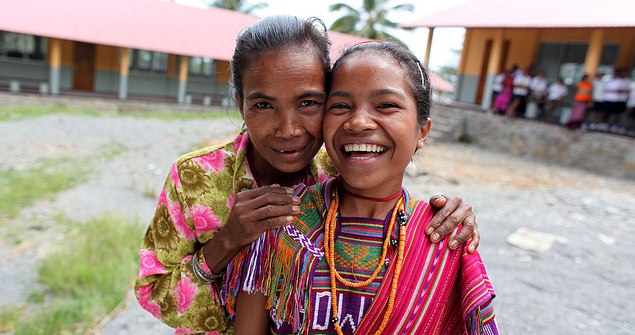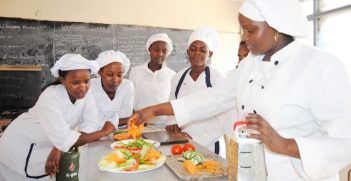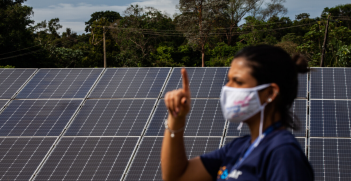The Budget and Cuts to Foreign Aid

With federal budgets cuts expected tonight (12 May 2015), it is worth considering how foreign aid cuts may undermine gender equality in the Indo-Pacific.
Australia’s foreign aid program promotes the national interest by combating poverty and supporting sustainable economic growth in the Indo-Pacific region. Last year the Minister for Foreign Affairs, Julie Bishop, introduced a new strategic framework for the aid program, which seeks to reduce poverty, enhance stability and promote prosperity within our region. Introducing this framework, Ms Bishop highlighted the importance of gender equality and empowering women to achieve poverty reduction and economic growth.
The importance of empowering women in development is enshrined in both the United Nation’s Millennium Development Goals and Sustainable Development Goals. The UN Development Programme has recognised gender equality as a “condition for inclusive, democratic, violence-free sustainable development”. When women have equal access to education and participate wholly in business and economic decision-making they become a central force in combating poverty. Promoting gender equality leads to better educated, healthier women, with improved access to land, employment and financial resources. It also leads to increased household incomes, reduced poverty and improved child wellbeing. Improving educational opportunities for women leads to increased economic growth and this growth occurs faster when women participate in the labour force. In spite of this, globally, girls still account for the majority of children not attending school and around two-thirds of women in developing nations work either in the informal sector or as unpaid domestic workers. Women are still outnumbered four to one in parliaments globally.
Ms Bishop has stated that the economic empowerment of women is not only “the right thing to do, it is the smart thing to do”, making gender equality crucial to the success of Australia’s aid program. She has identified it as one of the six pillars which underpin the aid program and established her commitment by describing herself as a “great champion and advocate for increased economic empowerment of women in the Pacific.” However, despite Ms Bishop’s commitment to improving the lives of women in developing nations, the Government threatened this goal by dramatically reducing aid funding in the last budget.
Last year the Coalition made the largest cuts to foreign aid ever seen in a single year. This considerably reduced the impact of Australia’s aid program and makes achieving any significant progress in the goals of poverty reduction, women’s empowerment and promoting a safer region unlikely. The foreign aid budget was slashed by $7.6 billion in May last year and by a further $3.7 billion in December. In 2016-17 it will reach its lowest level in recorded history – 0.22% of Gross National Income. These cuts have a real and appalling impact on the lives of the world’s most vulnerable people. They disproportionately affect women who are at a much higher risk of extreme poverty, due to the institutional discrimination and underlying gender biases which exist within developing nations. The deplorable impact of cuts to foreign aid has made the rhetoric on female empowerment ring hollow.
Based on data released by the Department of Foreign Affairs and Trade, child rights organisation Plan International Australia estimates that in the next financial year alone aid cuts are likely to result in:
- 220 000 fewer girls enrolled in school;
- 400 000 fewer girls immunised;
- 3153 fewer classrooms where girls can learn will be renovated or built;
- 157 000 fewer girls with improved access to safe drinking water;
- 750 000 fewer textbooks made available to girls.
Since last year’s cuts, Ms Bishop has reiterated her commitment to both the aid program and women’s empowerment. In March, 2015 she announced a $15 million investment in partnership with the World Bank to enhance women’s economic empowerment in the Indo-Pacific region over the next four years. In the light of rumours that further cuts to the aid budget are planned by Treasurer Joe Hockey this week, Ms Bishop issued a public ‘please explain’ which appears to have drawn a line in the sand. The aid budget was the Coalition’s single biggest victim last year, slashed by over $11 billion. Ms Bishop is under pressure to maintain her position as a champion for women’s empowerment and to stop cuts which harm the credibility and effectiveness of the aid program and damage efforts to promote our national interest in the Indo-Pacific.
Sinéad Mulders-Jones is an intern at the AIIA New South Wales Branch. This article can be republished with attribution under a Creative Commons Licence.





